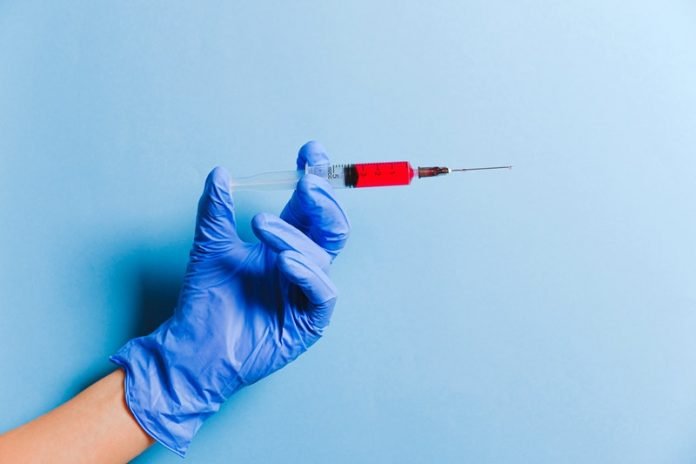
In a new study, researchers found positive results from preclinical testing of its COVID-19 vaccine candidate, PDS0203.
The research was conducted by a team at PDS Biotechnology, a clinical-stage immunotherapy company, and the University of Kentucky.
PDS0203 stands out among COVID-19 vaccines currently in development because it includes a vaccine technology pioneered by PDS Biotech called Versamune, which stimulates important parts of the immune system to activate T cells.
Versamune activates an important immunological signaling pathway known to be essential in the induction of both anti-viral and anti-tumor immune responses.
It is also more efficient at presenting the disease-associated protein to immunological pathways that activate both CD8 (killer) and CD4 (helper) T cells that can recognize, kill, and protect against a specific disease.
According the team, the most effective vaccines stimulate both antibody and T cells because both of those arms of the immune system are important to eliminate different viral infections.
While many of the vaccines out there stimulate a good antibody response, they don’t always activate T cells. That’s one of the key advantages of Versamune technology.
PDS0203 combines Versamune nanoparticles with a protein recognized by the human immune system that is derived from SARS-CoV-2, the virus that causes COVID-19.
Prototype vaccines were tested in UK based on various recombinant SARS-CoV-2 proteins, including spike protein constructs created by UK’s Protein Core lab.
In mouse models, PDS0203 showed strong activation of both protective antibodies as well as highly active and potent virus-specific CD8 killer and CD4 helper T cells within 14 days of treatment.
PDS Biotech is submitting the findings to a peer-reviewed scientific journal and is expected to advance the PDS0203 vaccine to a phase 1 safety and immunogenicity clinical trial in humans.
To test the antibody arm of the immune response, mice are vaccinated and serum is separated from blood samples and tested for the number of antibodies that will bind to the spike protein. To test the T cell arm of the immune response, T cells are isolated from the mice and tested for their ability to directly respond to peptides, or short pieces of protein, which are derived from the spike protein. The results have been promising.
The team found vaccination with the recombinant proteins including the spike protein alone elicits lower levels of antibody response and almost no T cell response.
When Versamune is added, it dramatically increases both the antibody and T cell immune responses.
The researchers say Versamune presents unique potential for a vaccine to provide the level of immune response needed for protection against COVID-19.
One researcher of the study is Jerry Woodward, a professor of Microbiology, Immunology and Molecular Genetics.
Copyright © 2020 Knowridge Science Report. All rights reserved.



